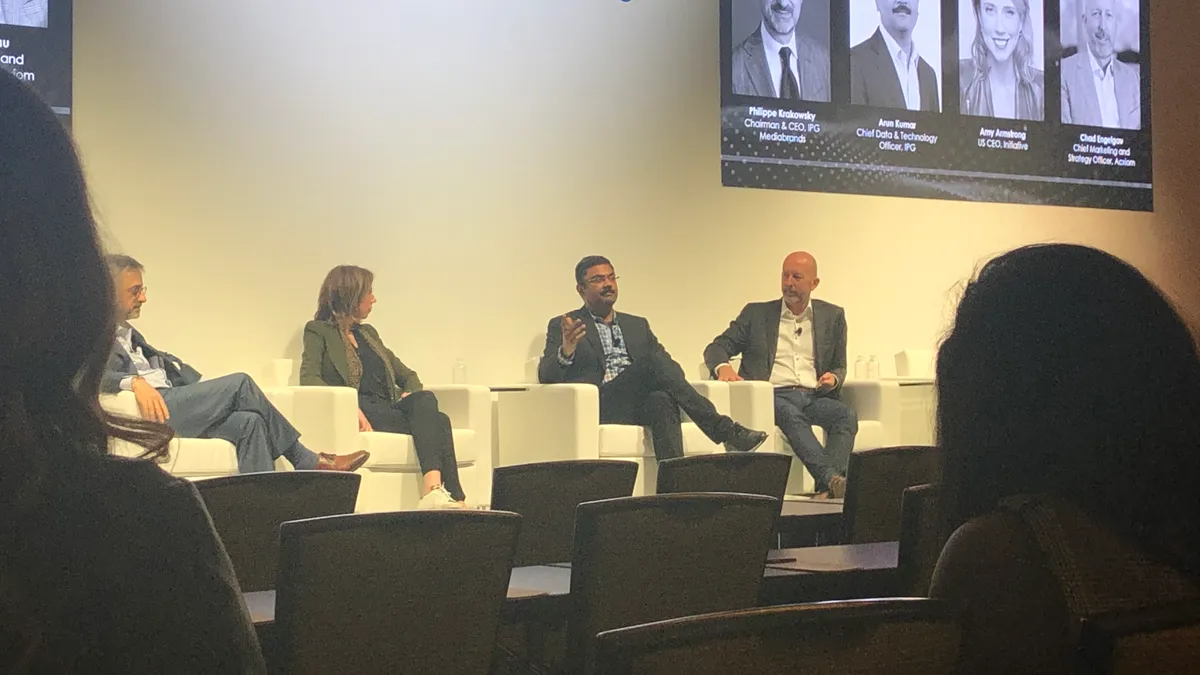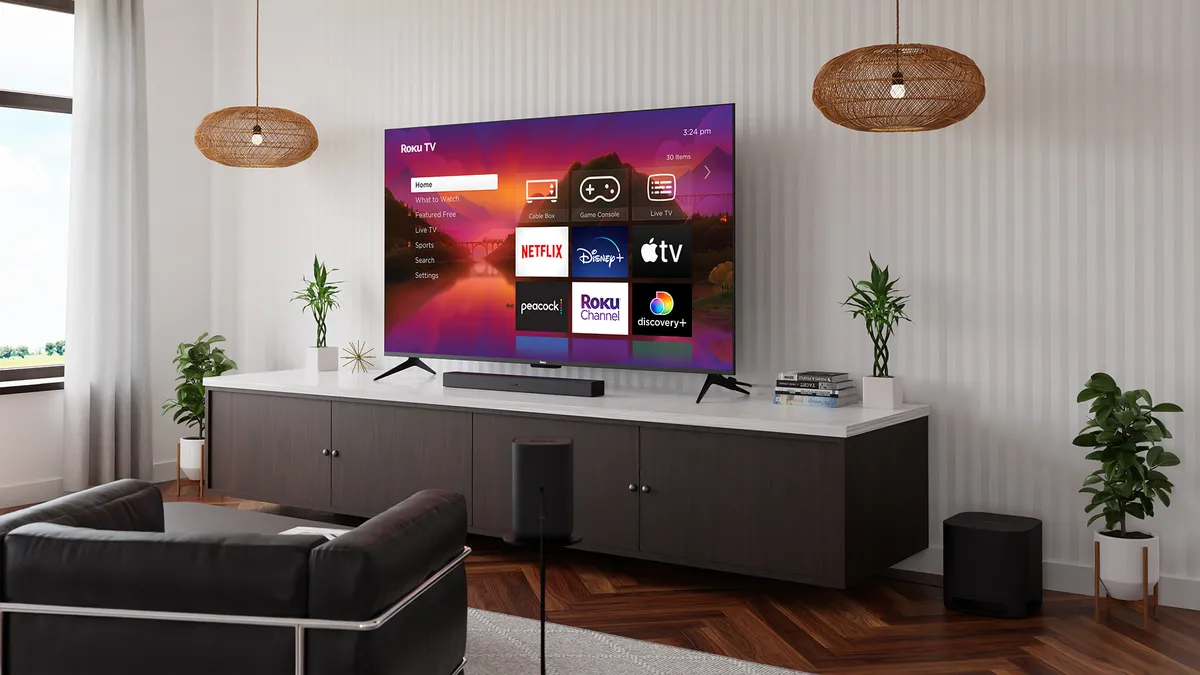Marketers are hunkering down for a wave of data privacy oversight as existing laws (like the EU's GDPR) continue to mete out steep noncompliance penalties, and state-level bills (like California's CCPA) are set to go into effect in the near future. As major brands and digital platforms prep for more far-reaching rules impacting their business in 2019, agencies speaking at 4A's first-ever Decisions 20/20 conference last week appeared to welcome what's shaping up to be a new era of government regulation, while still acknowledging that their side of the industry will need to play a bigger role in cleaning up house.
"We know that regulation and legislation needs to be updated," Nick Brien, CEO of Americas at Dentsu Aegis Network, said during a rousing talk that helped to kick off the show. "There needs to be greater regulation, there needs to be greater agency partnership."
Brien's calls for stronger oversight were echoed across several talks at the Decisions 20/20 conference, an event the 4A's has positioned as being able to drive more "tangible actions" for the industry. A few executives nodded to the desire for a single federal privacy law, following initiatives that have been put forth by a number of other trade bodies, such as the ANA and the IAB.
But one of the biggest takeaways from the show in Oxon Hill, Maryland, seemed to be that while adhering to new laws will demand greater agility from agencies in navigating areas like compliance and data management, it also signals a potential sea change in the dynamic between marketing services providers, their brand clients and the major platforms. Crucially, agencies may have an opportunity to fill in the transparency gaps where the platforms, like Google and Facebook, have failed. However, agencies may also need to grow a stronger backbone in addressing these issues with their clients, who may not be prioritizing data privacy as much a they should be.
"Data privacy is something which we, as an industry, do not have an excuse for saying next year: hey, we had no idea this thing was coming, or that we had no control over this," Arun Kumar, chief data and marketing technology officer at IPG, said on a panel. He contrasted the situation with the one that has played out with brand safety on YouTube, which did take marketers off guard but has only resulted in periodic spending freezes as a response.
"The issue [of] why [data privacy] does not rise up is that we talk a lot about putting the consumer at the center. We don't, we put the brand at the center: We put the brand at the center of the world," Kumar said. "It will take some time for people to understand that."
Stitching things together
Agencies taking more principled stands around data privacy could help to restore a seat at the table that has diminished in recent years amid spending cuts, an uptick in client in-housing and the rise of new competitors like consultancies — all issues that made for frequent discussion at Decisions 20/20. Moving to clean up the privacy space might be essential in any case in order to quell mounting consumer consumers, speakers cautioned. One pointed to how wariness toward the ways in which personal information is handled by business has led to the coining of dystopian-sounding terms like "surveillance capitalism."
"When you mine any commodity, there's cost to the environment. Data is a double-edged sword," Philippe Krakowsky, chief strategy and talent officer, IPG, and the chairman and CEO of the agency group's Mediabrands unit, said on a panel with Kumar. "For every large company out there and for every major brand, mismanaging data is clearly a third rail at the corporate CEO risk level."
"Whether it's because politics or economics, there will be a divergence between platforms and data."

Arun Kumar
Chief data and marketing technology officer, IPG
Speakers at Decisions 20/20 also targeted companies like Facebook, which was a partner of the event, for their role in elevating levels of distrust when it comes to privacy. Some viewed the digital platforms' notorious walled garden model of keeping user data close to the chest as being less tenable as scrutiny toward data-sharing practices continues to grow from regulators and other industry watchdogs. Agencies are sometimes more openly critical of Facebook and its peers because they occasionally compete with the platforms for brand dollars.
"Whether it's because politics or economics, there will be a divergence between platforms and data," Kumar said.
That analysis has already started to play out in some ways: Facebook, for example, is pivoting toward a new business model that it says will be focused on private, encrypted and ephemeral messaging, arguably a far more narrow lane than the one it currently occupies. The social network's chief executive Mark Zuckerberg also recently penned a Washington Post op-ed that voices support for greater regulation but proposes four areas for lawmakers to follow in order to ensure their approach is modernized and relevant to the internet era. As he and other business leaders ramp up their efforts to get out ahead of regulation, agencies might be able to reclaim some of their lost influence as players that help guide the decisions made around merging data with creativity, according to Kumar.
"That sweet spot [between data and creativity] is not going to be occupied by someone who 'does it all,' but someone who's able to stitch it together and hold it together," Kumar said. "It's not building a [new] pipe that's going to get you there. If there's any reason why we should not believe it, we should just take a look at the platforms and their inability to do everything that they've claimed that they will [do]."
Innovation outpaces regulation
Several presenters at Decisions 20/20 also explained how they've internally adjusted their business to account for privacy headwinds. IPG, for instance, positioned its $2.3 billion acquisition of the data marketing division of Acxiom last year as a means not only to improve pitches to clients around merging data and media, but also better navigate increasingly complex waters.
"Innovation is always going to outpace regulation," IPG's Krakowsky said. "[Acxiom] was the biggest acquisition we did as a management team and this was the bet we were willing to make given the way the world is going."
Other agencies have appeared to take notes. Publicis Groupe confirmed earlier this week that it is in talks with Alliance Data Systems Corporation to potentially acquire its data marketing division Epsilon. Bloomberg reported that a deal for the unit, which is also being jointly explored by Advent International and Goldman Sachs, could command up to $5 billion.
Such significant moves help to illustrate how agencies need to develop stronger data strategies now. Failing to do so could mean losing out on the vast business potential that data-driven marketing promises.
"All of us need to focus on the fact that if we can't do [data management] well, then all of the other really interesting solutions, really exciting ideas and the creativity that we as an industry bring to bear sits on a less-than-firm foundation," Krakowsky said.






















